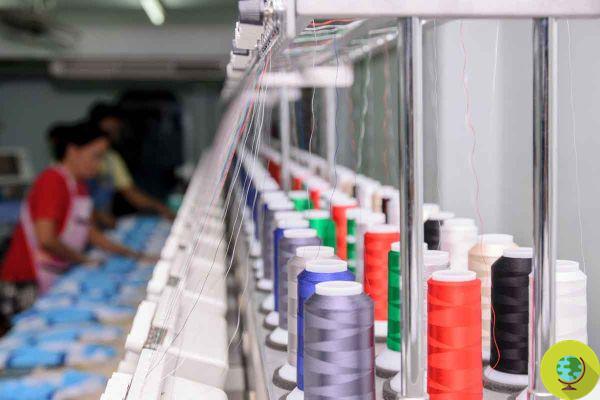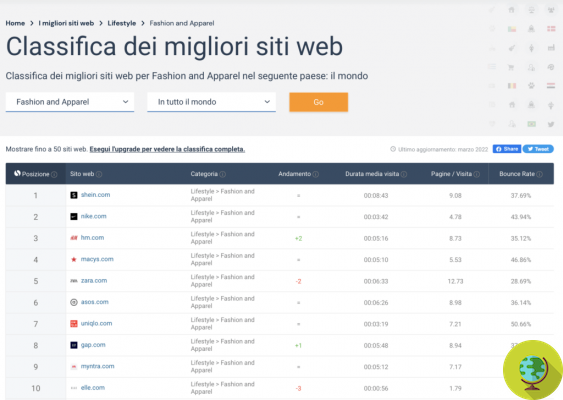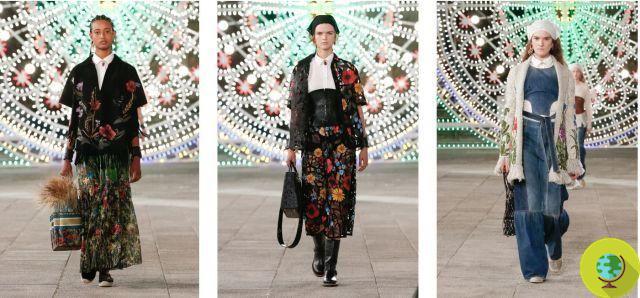An e-commerce that offers bargain prices, but ... at the time of purchase the surprise: it is a "fake" site that reveals the true cost of fashion
Don't store avocado like this: it's dangerousAn e-commerce that offers offers for clothing at bargain prices, but ... at the time of purchase the surprise: it is a "fake" site, which has the only great goal of revealing the true cost of "use and throws ”and the consequences caused by fast fashion.
Even in times of crisis, people cannot give up on so-called fast fashion. The Mani Tese NGO has launched the 'Other World Prices' campaign to raise public awareness of the many problems generated by unbridled consumerism in the clothing sector. In the numerous specialized online sites we can in fact buy low-cost clothing, which with a simple click will be shipped to our home.
On the virtual shop Prices from another world, however, when you buy an item of clothing, on the site you will see not only the list price, but also the true price of that garment, which includes all those additional “invisible” costs, linked to the unsustainable human and environmental impact of the production-industrial process.
The textile industry generates waste and contributes to the increase of greenhouse gas emissions; every year, in fact, it produces about 1,2 billion tons of greenhouse gases and occupies 38 million hectares of land, destined for the cultivation and production of clothes; then, if workers in the textile sector, especially in the southern hemisphere and in Asian countries, are exploited by employers and suffer systematic abuses of all kinds, some imperative human rights are inevitably violated and new forms of slavery are more or not openly tolerated.
How it works
When he chooses one of the products offered "for sale" and puts it in the cart, instead of concluding a great deal, the user is informed of everything that the garment hides. The information is both in the relevant video that appears and in the product description list.
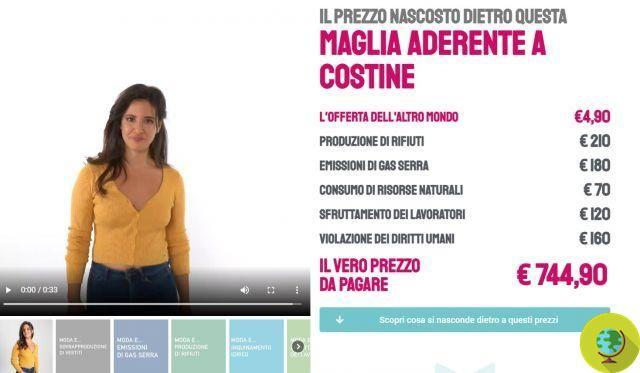
@Mani Tese
In order to be able to sell at such low prices, in fact, in addition to the poor quality of the materials used, fast fashion relies on the outsourcing and relocation strategies of the major global brands, which base a large part of their production in factories characterized by very low labor costs. , lack of effective worker protection and poor compliance with environmental regulations.
The NGO project is aimed above all at young people between 18 and 35, who are particularly attracted to disposable fashion advertised on the Internet. The daughter of a totally unsustainable model on both a social and environmental level, it exacerbates the scope of the problems already existing in the remaining clothing industry.
A cheap dress is often made of poor quality materials, harmful to humans (including children) and to the environment, as it draws on scarce natural resources. Not surprisingly, the main clothing brands in the world have relocated production to countries where the legislative protection of workers is less stringent and / or where there is no environmental legislation.
How to abandon disposable fashion
To change your preferences with respect to the world of clothing and to become more responsible consumers and attentive to the ethical implications of their purchasing behavior, you can do many things:
- Buy fewer things and wear them a lot more.
- Your personal style is like you: unique! You don't have to follow seasonal trends to express your identity.
- Avoid impulse buying: in most cases it is intended for the bottom of the cabinet!
- Learn to read the labels and certifications of environmental and social quality, knowing that they will never be able to say everything about the garment you are about to buy.
- Find out about your favorite clothing brands and let them know that sustainability, respect for workers' rights and transparency are important to you.
- Choose fabrics in natural fibers and, if you really have to buy synthetic fabrics, prefer those obtained from the recycling of plastic materials.
- Avoid long car journeys from one shop to another: move on foot or by bike when you need to make a purchase, or buy online in an informed way.
- Discover the charm of thrift, vintage and fair trade shops.
- Modify your old clothes to reinvent them and give them a second life (refashion).
- Choose if you want to apply one or more of these tips, and remember that there is no one-size-fits-all way to be an informed consumer. Just like there is no single way to dress and contribute to a fairer and more sustainable world
Sources: Mani Tese / Other World Prices
Read also:
The pandemic exacerbates the plight of exploited workers in low-cost fashion factories





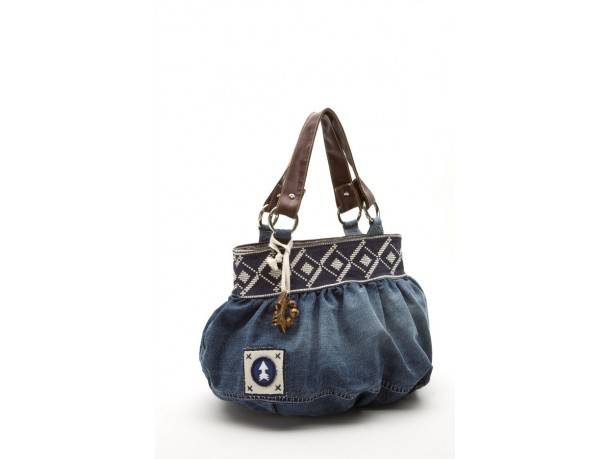




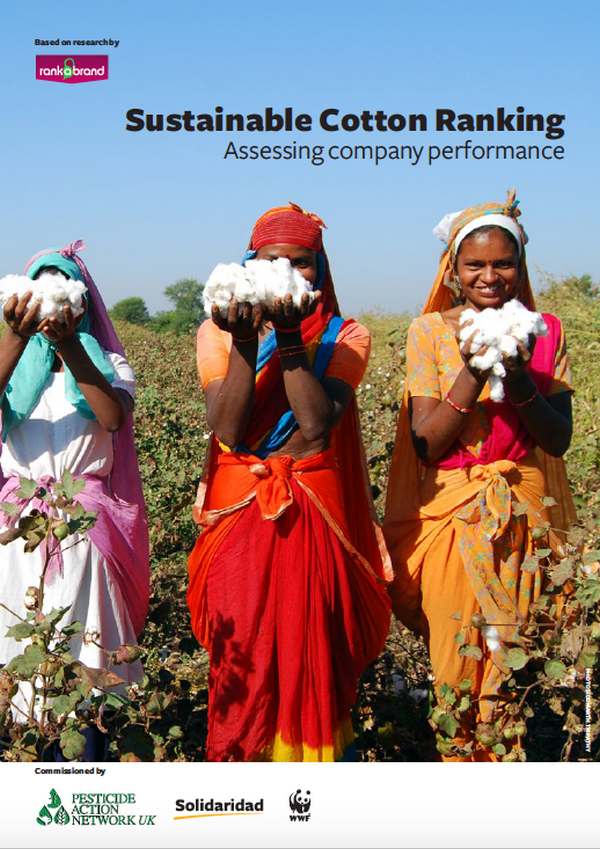




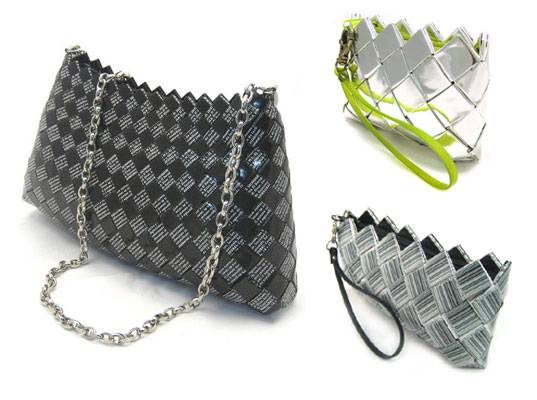


![Vivienne Westwood has a message for all the powerful ahead of COP26 [VIDEO]](/images/posts/221fa8f5dd2d21a4210e6b9071546b56-0.jpg)


